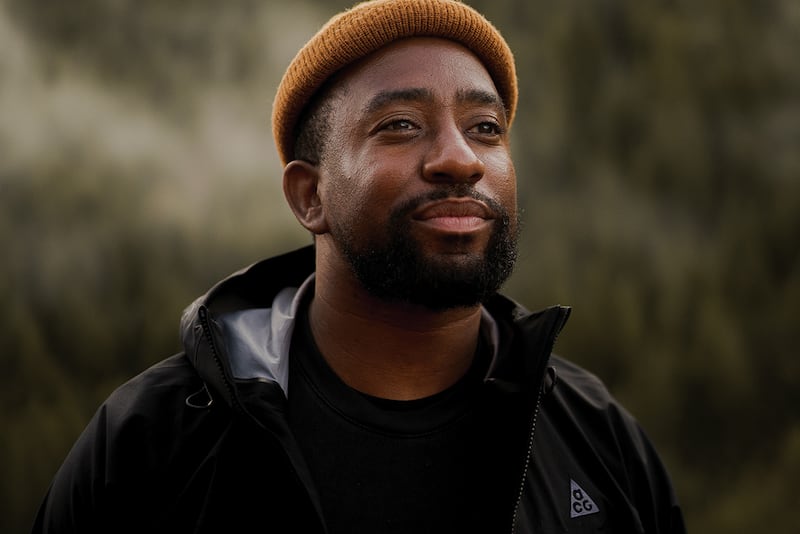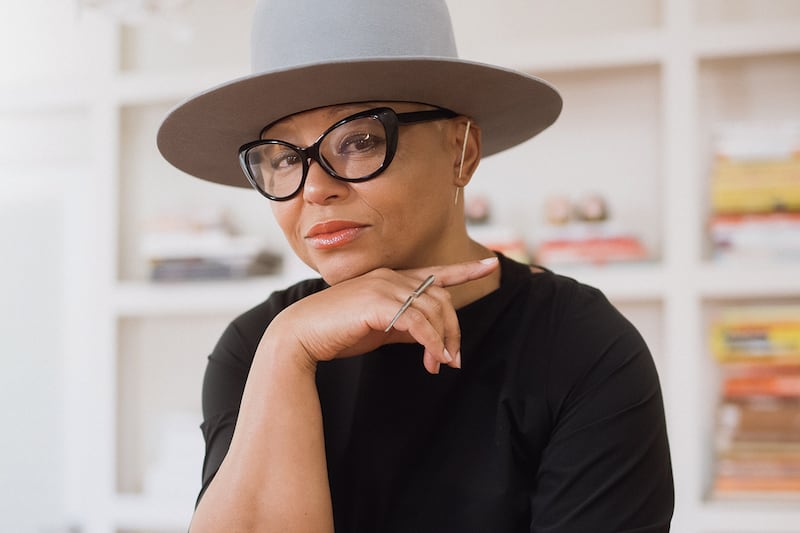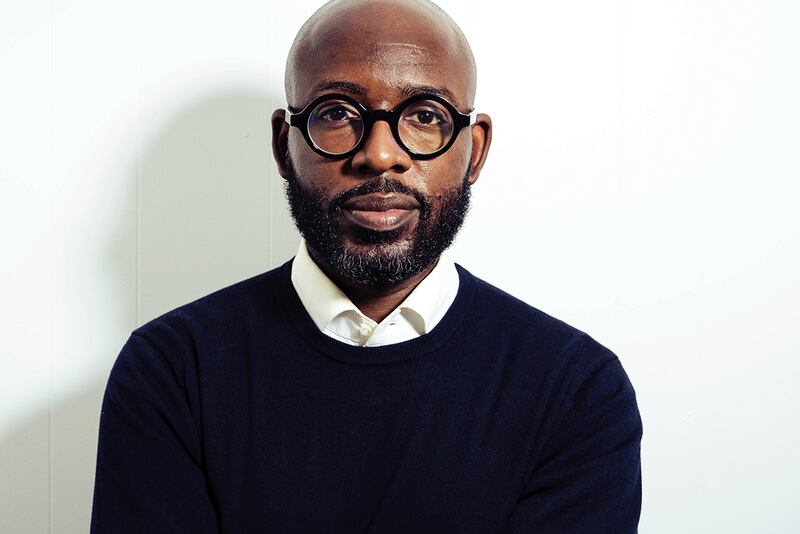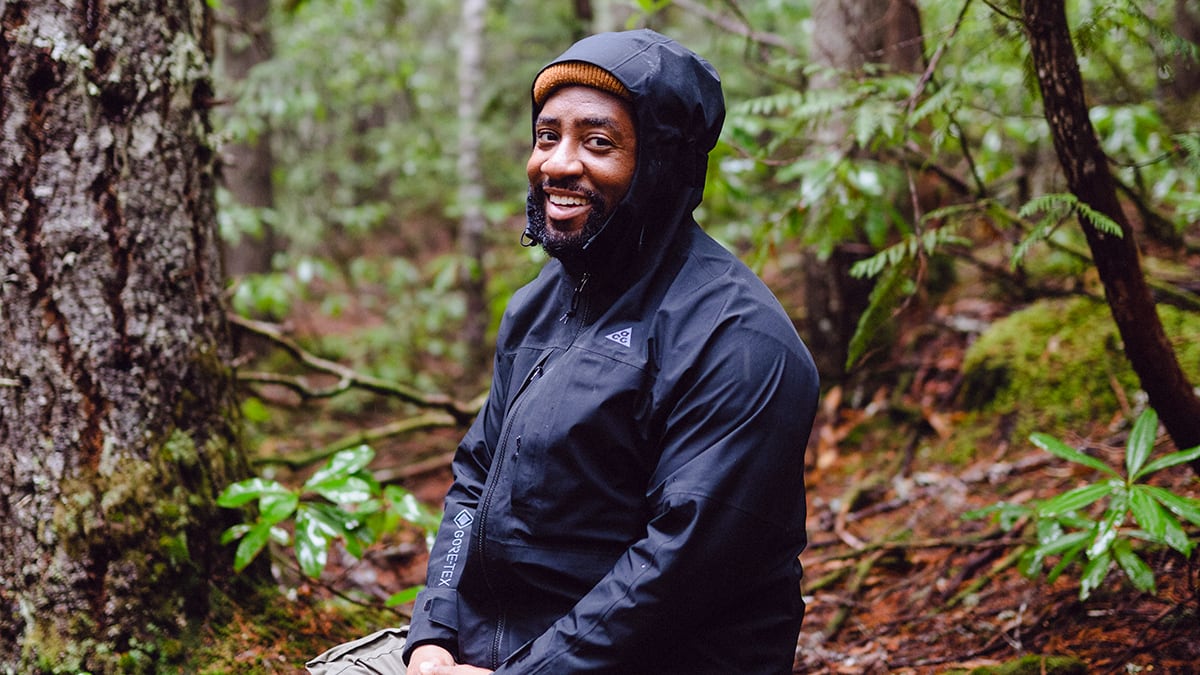A camping trip deep in the Oregon desert. A dog leash made from biodegradable wool. A wallet that makes being pulled over by police a little less frightening.
These aren’t the first images that leap to mind when people think of the Black experience in Portland. But soon, they could be.
They are the work of three Black entrepreneurs who have quietly sought to transform the day-to-day lives of their fellow citizens.
In the coming month, cities across the country will celebrate Black History Month. In Portland, that will mean confronting a past riddled with racism, exclusion and pain. It will also include celebrations of the people who have triumphed in bringing a little more freedom and fairness to the Rose City. (For a list of several noteworthy events, see below.)
But talking about what it means to be Black in Portland also means looking toward the future.
As this city has grappled with the fallout from the George Floyd murder and the unrest that followed, what’s fueled protests and policy reforms is the hope that life here can change.
This year, photographer Joseph Blake, Jr. met with the editors of Willamette Week and pitched an idea: Instead of only looking at the history of Black Portlanders, dedicate some space in these pages to the people making a different future.
To do that, he suggested, WW should show readers portraits of Black people who started innovative businesses in the past several years.
To be an entrepreneur means dreaming of a better world. It means looking at what exists and imagining how it can change, even in small ways.
Creating change is often something we associate with politics and activism—rightly so. It’s not often linked to startups. That’s because capital, so often controlled by white institutions, is withheld from people of color whose ideas are unfamiliar to banks and investors, says Himalaya Rao, who helped launch Black Founders Matter to seek that funding.
“Venture capital comprises individuals with generational wealth,” Rao says. “They’re always gravitating toward what they know, rather than innovation. I think that’s why Black founders have been left out. People are always looking for the same thing within the same box. You’re leaving out deals that you can’t measure based on what exists.”
So, in the following pages, you’ll see the faces and stories of three people who had big ideas—and are making them reality. Maybe they’re a glimpse of the future.
—Aaron Mesh, News Editor
Rashad Frazier
Camp Yoshi

Last summer, in a dry lake bed in Southeastern Oregon called the Alvord Desert, Rashad Frazier prepared a feast.
He made braised short ribs over grits, fried rice and miso-marinated black cod. Frazier served the gourmet meal on a table set next to tents in the middle of the desert. As his guests ate, they looked up to see stars far brighter than they’d ever seen in Portland.
If the meal wasn’t typical camp fare, the dining party was unusual in another way: In Harney County, which is 92% white, all 16 campers were Black.
It was the realization of a vision that came to Frazier, 41, a year prior, as he camped with his wife, Shequeita, and brother Ron in Whitefish, Mont. The trio talked about the pleasure they took from planning trips into the outdoors. And they realized that for many people who looked like them, the prospect of such a journey summoned only stress and worry.
“Racism is still a big issue,” Frazier says. “We obviously know the issues around diversity and inclusivity in these spaces.”
By that, he means that for many Black people, the wonders of Oregon—the craggy beaches, the fern-filled forests, the steaming hot springs—all look like white places. The small towns and surrounding wilderness of the American West are often populated white people, and that leaves Black visitors with the sensation, not always incorrect, that they are unwelcome.
It was the summer of George Floyd’s murder, and Frazier felt especially keenly that Black people needed spaces where they could escape. But how to get them there, when the great outdoors seemed so forbidding?
Frazier decided he could be a tour guide.
His New York City catering business, which served African-Asian fusion cooking under the name Yoshi Jenkins, had just folded amid COVID closures. So he decided to take the food outside. He moved to Lake Oswego and called his new company Camp Yoshi.
Frazier offers a high-end camping trip where his team handles the logistics. He ticks off the list: “Where are we going? How are we going to get there? What kind of gear do we need? What provisions do we need? Calculate our fuel cost. Running the numbers to make sure we have everything is probably most of my time.”
For $2,950 per person, Camp Yoshi provides four-day, three-night guided trips to places like the San Juan Mountains in Colorado or the Mojave Desert in California. A trip to Steens Mountain at Oregon’s easternmost edge starts in Bend, where three Jeep Rubicons ferry guests to a campsite where they’re greeted by tents, tarps, chairs, firewood, meals and cocktails (in Camp Yoshi-branded mugs). The only thing customers must provide themselves is a sleeping bag.
There were bumps in the road. Frazier still shudders at the memory of an early Camp Yoshi trip where he forgot to pack coffee. But the company has now completed eight trips—the most recent to Puerto Rico—and has another 21 scheduled for this year.
Frazier loves that he’s leading people into the unknown.
“I think the fact we went into this not knowing everything,” he says, “made us more sympathetic and more open to building community with everyone and anyone. Educating our campers is the biggest goal. It makes it easier to ask questions where oftentimes we don’t know the answer either. Not knowing made us more curious—fearless.”
Angela Medlin
House Dogge

Angela Medlin doesn’t have a dog. That might seem strange given that, five years ago, Medlin left an executive suite job at Nike to start a brand of products for dogs and their people.
But that absence is a big part of her story. For years, Medlin made leather and wool tug toys for her Olde English Bulldogge, Wubbi. At Christmas 2016, she quit her job as design director of Nike’s Jordan brand to launch a line of toys and clothes called House Dogge.
A year later, Wubbi died of lymphoma.
For Medlin, 53, that loss was a confirmation: She would stick to her vision of people and animals living free from the chemicals that fill plastic leashes and rawhide chews.
“I declared I would do something with purpose only,” she says. “Dogs chose me, made me learn more about myself. What can I contribute to a dog’s well-being?”
Born in Bennettsville, S.C., Medlin had already spent two decades challenging assumptions in apparel design. Her résumé is a who’s who of sportswear heavyweights: Adidas, Levi Strauss, the North Face, and behind the berm at Nike. Often, her work sought to blend what a hiker would need for a day in the woods with what a clubgoer would don for a night on the town.
All the while, she was collecting pictures of people romping with their dogs.
“I had been collecting that for at least five years, and just putting it on the wall as inspiration,” she recalls. “There are things from Japan and Europe and wherever I was traveling. It just started to accumulate. I was looking at this concept come to life on my wall.”
The idea she concocted was a wrinkle on the classic Nike playbook: fashionwear worn while exercising. Except this time, the exercise was a trip to the dog park. (As for the company name, Medlin chose it to signal luxury: “House dogs are known to be pampered,” she says.)
So Medlin designed a collar lined with soft, brightly dyed wool (it retails for $40). She made a leash with the same comfortable wool in the handle ($60). And hoodies: matching sweaters for dogs and their people ($51-$85), and a line of dog hoodies with the words “LOVED” and “BLESSED” running from head to tail ($55).
It was the hoodies that caught the eye of Oprah Winfrey, whose empire selected House Dogge as one of “Oprah’s Favorite Things” in 2020. Medlin sold 50,000 products in the next two months. “We were up 3,000% in sales,” she recalls.
Medlin is still working out of her Southeast Portland home and, in a typical week, ships between five and 15 leashes a week.
She kept her promise to Wubbi: Her products are made from natural materials. The wool is biodegradable, the cotton upcycled, the leather tanned with tree bark and fruit. The fabrics are woven to breathe—which, not coincidentally, is also the advice she gives to entrepreneurs standing where she was in 2017.
“Breathe,” she says. “When you get into this, it’s not going to be easy. So breathe through those times that are challenging, when you have to pivot and problem solve. If I can accomplish this in three years, what can I accomplish later?”
Jeremy Roberts
Dashdok

Somewhere between Austin and Houston, Jeremy Roberts felt the fear.
It was 2018. Roberts, 35, who lives in Southwest Portland, had just attended his youngest sister’s college graduation in Texas. He hit the road with his son and his niece, and got an uneasy feeling. He knew the fear: It was driving while Black.
“We’ve all seen the headlines,” Roberts says. “We know what happens when traffic stops get tense. I know firsthand and have personally been involved in some terrifying police encounters on the road.”
No police officer pulled over the Roberts family car that day. But the man at the wheel let his imagination run. “My mind just started wandering in and out of different possible solutions,” he recalls.
The solution he landed on was disarmingly simple: a wallet that attaches magnetically to a car dashboard, allowing drivers to reach for their license and registration with their hands in plain sight.
In July 2020—two months after the murder of George Floyd—Roberts filed paperwork with the state of Oregon to found a company called Dashdok.
“While police reform and response will continue to be hotly debated, one thing remains clear and true: Drivers and law enforcement both need better systems and support for smoother, less stressed traffic stops,” Roberts told WW in an email.
Dashdok wallets are, well, wallets: flat, leather and stitched with five pouches. A magnetic strip at the wallet’s base lets it dock to the dashboard of the car. The wallets start at $26, for cotton, and rise in price to $212, for goatskin. A leather model sits in between, at $90.
“What we’re doing, it knows no socioeconomic bounds,” Roberts says. “We wanted to create something that was affordable to the masses, but also that appeals to people accustomed to designer luxury.”
So far, he’s sold a few dozen wallets —all presale units. His goal for 2022 is to sell 10,000. “It’s ambitious,” he says, “but what’s a goal without being ambitious?”
Roberts, who is trained as a tailor and works in business development at Adidas, is similar to the other two subjects of our stories this week in one key way: He’s received no outside funding or venture capital. That’s not unusual for a Black-owned startup, says Himalaya Rao, co-founder of Black Founders Matter.
“If you’ve never experienced what it feels like to have an uncomfortable situation with the police, what would prompt you in your mind to come up with something like the magnetic wallet?” Rao asks. “Different lived experiences and different pain points create different outcomes. Why would you come up with a solution if you didn’t know a problem existed?”
What is perhaps more unusual is that Roberts’ invention comes with the endorsement of Portland police officers. Roberts chose to seek the input of police—the people he feared would pull him over—to improve his design.
“If you were to ask me this when I was 15 or 16, we’d be having a different conversation,” Roberts says. “For officers, Dashdok represents one less thing for them to worry about. I was able to connect with them on a real level. It’s a very difficult mountain to move, but there are people trying to move it.”
Say It Loud
Portland is filled with Black History Month events. Here are six worth your consideration.
Cascade Festival of African Films
The longest-running African film festival in the country opens with DiaTribe, a documentary that traces hip-hop dance moves back to African dance traditions. More movies continue into March, both in theatrical screenings and with virtual events. DiaTribe screens at the Hollywood Theatre, 4122 NE Sandy Blvd. 7 pm Friday, Feb. 4. For full schedule, visit africanfilmfestival.org. Free.
In My Shoes
Over the next month, young Black men will lead 45-minute walking tours through their neighborhoods, including Cully, Kenton and Parkrose. Presented by the nonprofit Word is Bond, the ambulatory storytelling sessions are designed to show Portlanders—including police officers—why these neighborhoods matter to the young men who live there. Nine neighborhoods, mywordisbond.org/inmyshoes. Saturdays, Feb. 5-29. Free.
All Power to the People
A three-day tribute honors Kent Ford, a founding member of the Portland chapter of the Black Panther Party. The event opens with a staged reading of a new solo play about Ford, Walking Through Portland With a Panther. On the second evening: a history of the Panthers guided by Ford himself. Cerimon House, 5131 NE 23rd Ave. 6 pm Friday, 2 pm Saturday-Sunday, Feb. 11-13. Free.
The 6th Annual NW Black Comedy Festival
For four days, two Northeast Portland venues host more than 60 Black comics, with individual showcases dedicated to local performers, women and the raunchiest jokes. Plus: live recording of two podcasts. Alberta Abbey, 126 NE Alberta St.; Curious Comedy Theater, 5225 NE Martin Luther King Jr. Blvd.; nwblackcomedyfest.wordpress.com. Thursday-Tuesday, Feb. 17-22. $20 per show.
Black Lives Matter Artist Grant Exhibition
In the months after George Floyd’s murder, Jordan D. Schnitzer established a granting program that awarded $2,500 grants to 60 artists in Oregon and Washington. A jury representing PSU selected 20 Black and Indigenous artists and their resulting works—considerations of Black trauma and healing on a scale that covers walls—are now on display. Jordan Schnitzer Museum of Art at Portland State University, 1855 SW Broadway. Tuesdays-Saturdays through April. Free.
We Had Jazz
If you’re attending the Portland Jazz Festival this year, consider making a stop at the Multnomah County Central Library, where 30 photos of Portland’s golden age of jazz are on display. The photos, taken by Carl Henniger, include Duke Ellington, Ella Fitzgerald and Count Basie performing in Portland nightclubs. Multnomah County Central Library, Collins Gallery, 801 SW 10th Ave. Through Feb. 28. Free.
